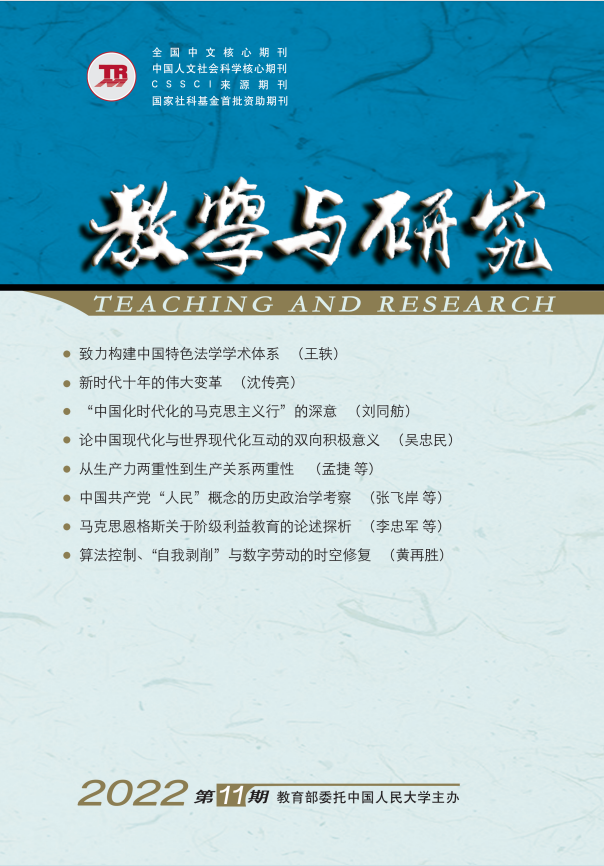General Secretary Xi Jinping made the remarks during a visit to Renmin University of China that “the essence of ideological and political education is to bring out the facts and reasons”, which has profound implications. The essence of ideological and political courses is to bring out the facts and reasons, which reflects the Party’s deep grasp of the nature of ideological and political education, its high confidence in the content of ideological and political education, and its full trust in teachers and young students in ideological and political courses, and also points out the fundamental direction of promoting the reform and innovation of ideological and political education in the new era. To promote the inclusive and highquality development of ideological and political education in the new era, we should focus on enhancing the quality of the instructional material system, consolidating academic research, integrating social practices, and innovating teaching methods. We should explain the Chinese approach, the Chinese governance, the basis of China‘s strength,the principles that China follows, and the Chinese dream accurately, profoundly, thoroughly, and vigorously. We should scientifically answer the questions about China, the world, the people, the times, and the youth. We should educate and guide young students to strengthen their self-confidence, identify their comparative advantages, adhere to “putting the people first”, cultivate their theoretical thinking, and strive to be newcomers of the times.



